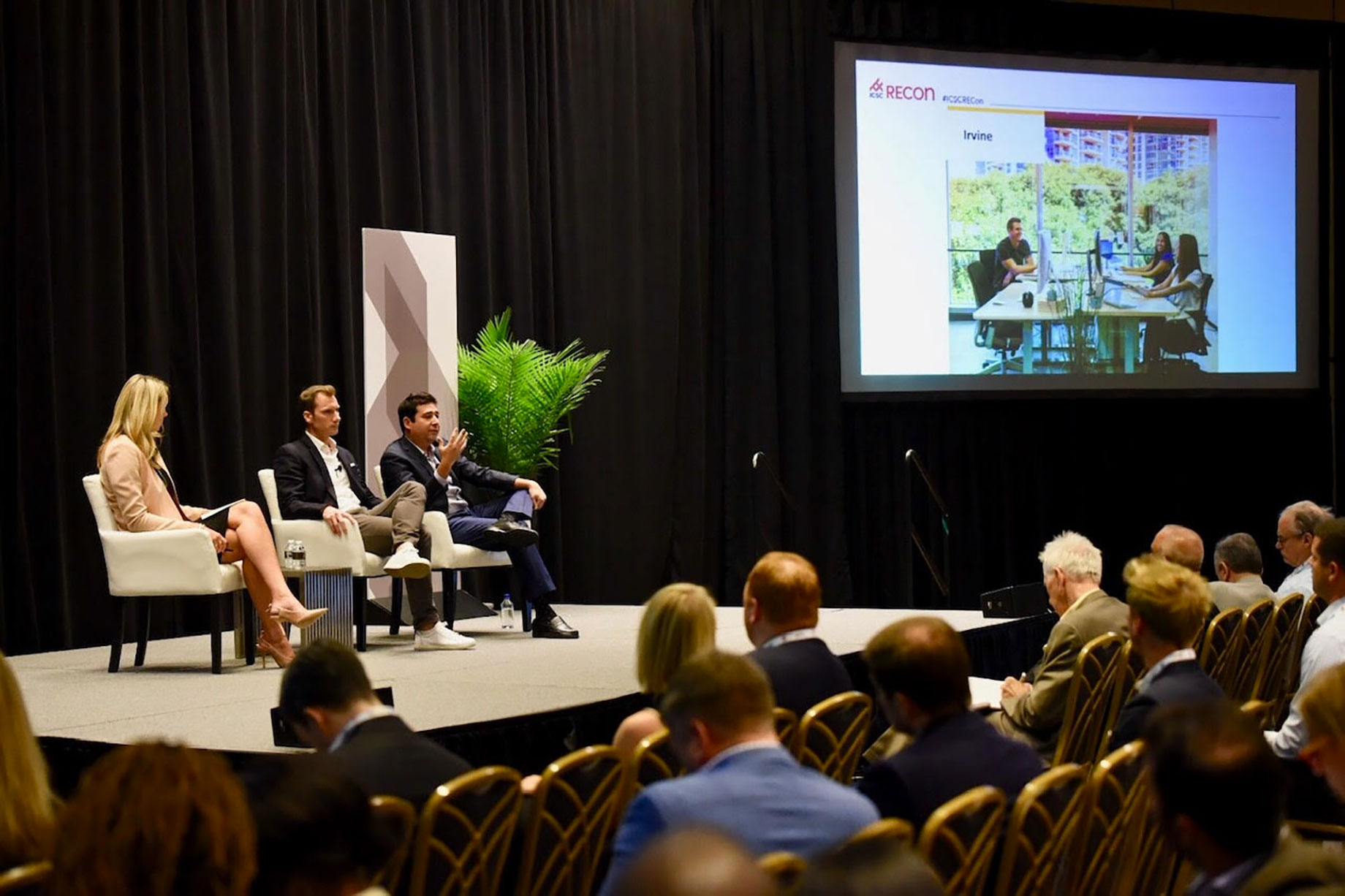Shared work spaces in retail centers may be a recent phenomenon, but the trend is becoming the industry's fastest-growing segment, with malls and open-air centers offering a perfect setting for temporary office digs, said top executives of co-working companies at RECon on Monday. Leaders from co-working firms Industrious and Spacious shared their perspectives at a session titled The Co-Working Craze.

Industrious, for one, has taken over a former Barney's location in Scottsdale, Ariz. Among the landlords playing host to such companies are Brookfield Properties (formerly GGP), Macerich and Unibail-Rodamco-Westfield. And there is a reason that retail centers are popular choices for co-working firms, asserts Justin Stewart, president and co-founder of Industrious: Co-work space at malls tends to fill up significantly faster — about 20 days, on average, versus 90 days for offices. "All of your mall amenities are in walking distance for workers," he said. In strip centers, co-working space boosts rents by up to 30 percent, he added.
"We pop up in a variety of vacant retail locations and can activate that dead space as a place to get work done," Stewart said. All such retail co-work spaces have separate, dedicated entrances for their clients, he noted.

Justin Stewart, co-founder and CEO, Industrious
Industrious is at 76 locations across 42 U.S. cities. To illustrate how fast the business is growing, Stewart points out that there are nearly 90 co-working concerns in Chicago alone.
Co-working environments have actually been around since the late 1970s, but they did not really take off until early this decade, says Amanda Murray, platform manager for U.S. markets at Cushman & Wakefield. The industry is predicting 25 percent growth to occupy about 3.4 million square feet by 2023, she said.

Preston Pesek, co-founder and CEO, Spacious
Though levels of co-working spaces vary from basic to premium, much like hotels, they can pop up quickly and they need only basic amenities: fast Wi-Fi, coffee and clean restrooms, noted Stewart. Spacious typically charges $20 per day for a co-working drop-in, and $150 per month. In New York City and other metro areas, co-workers tend to bounce around the city so they can stay close to clients for meetings and other interactions.
Co-workers typically use the shared offices for two to three days per week, and less than a third are in use at any given time, says Preston Pesek, co-founder and CEO of New York City–based Spacious. The average co-working user is about 39 years old, he said. Spacious finds its co-working locations by renting premium restaurant space in eateries that do not open until 5 p.m., which provides clients with high-quality space and with work stations that can easily be broken down by the time the restaurant opens, observed Stewart. And Pesek adds that his company rents other locations in retail centers that allow co-workers to stay open for longer evening hours.
“For companies of 20 workers or fewer today, shared offices 'are really the only options'”
Initially, only smaller businesses took to shared offices, but over the past few years, Fortune 500 and other large companies have come aboard, says Pesek. Spacious, which operates under licensing agreements instead of leases, considers its main competition to be Starbucks and WeWork. Pesek notes that retail space brokers are steadily embracing the trend and have become invaluable resources for finding new co-working spaces. Such spaces provide a variety of needs, including meeting rooms, nap pods and nursing rooms. For companies of 20 workers or fewer today, shared offices "are really the only options," Pesek said.
Stewart is sometimes asked to speculate when he thinks the shared-office "fad" will end. It will not, he says: "This is a cool thing that is only starting to evolve."
Pesek concurs: "For retail landlords, it is much better than a vacancy; it is found money."
By Steve McLinden
Contributor, Commerce + Communities Today


